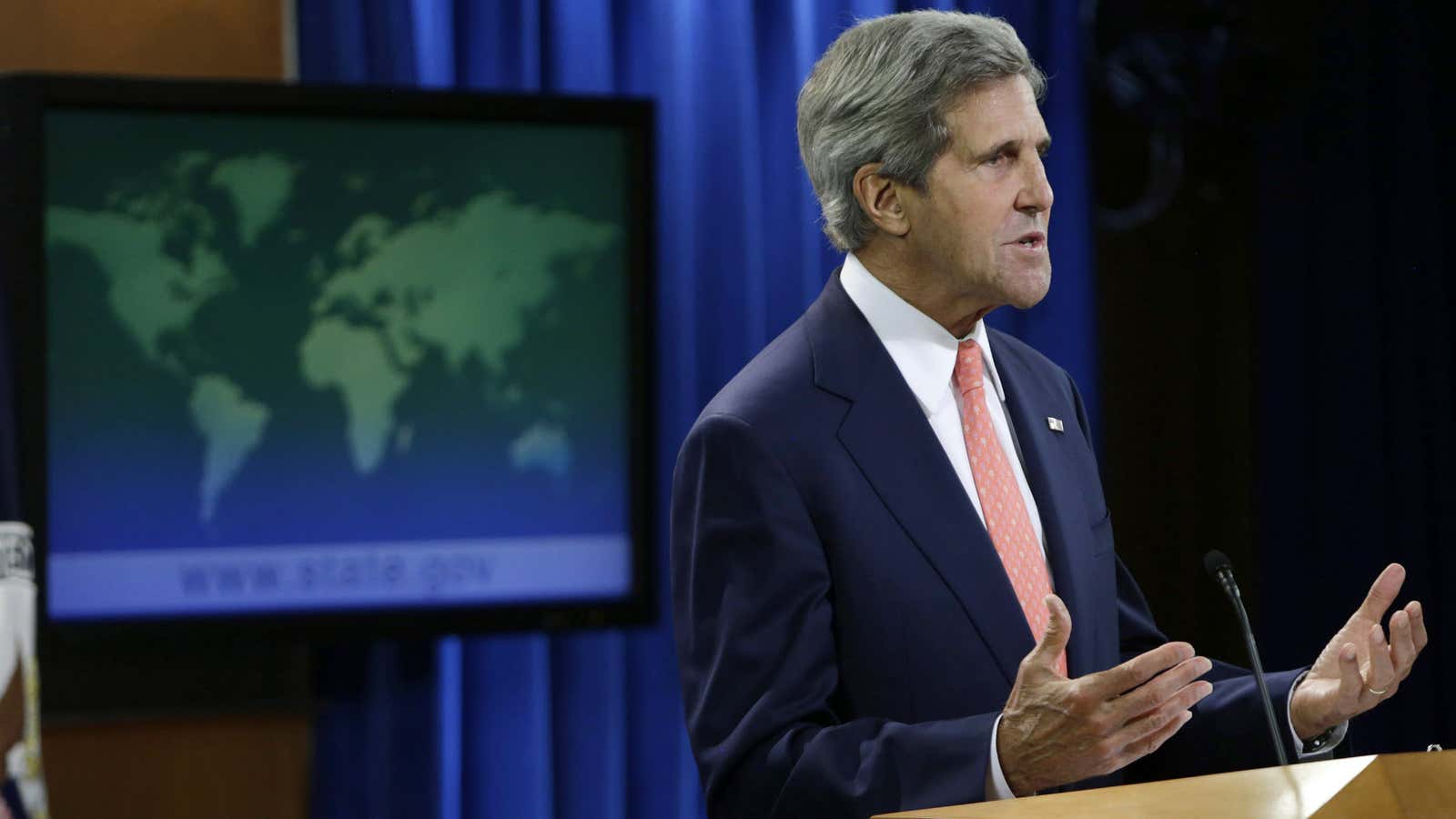A week after what looks pretty certain to have been a chemical weapons attack led to the deaths of possibly as many as 1,300 Syrians, the US, the UK and France are now angling towards some kind of bombing campaign. But it’s worth noting that bombing Syria won’t be about hastening the overthrow of the man behind the terror, Bashar al-Assad. The goal is purely to send a signal that no country will be allowed to get away with using chemical weapons.
In his statement condemning the Assad regime on Monday (Aug. 26), US secretary of state John Kerry said:
The meaning of this attack goes beyond the conflict in Syria itself, and that conflict has already brought so much terrible suffering. This is about the large-scale, indiscriminate use of weapons that the civilized world long ago decided must never be used at all, a conviction shared even by countries that agree on little else.
In an interview yesterday, British prime minister David Cameron underlined:
Let me stress to people: this is not about getting involved in a Middle Eastern war, or changing our stance in Syria, or going further into that conflict. It’s nothing to do with that. It’s about chemical weapons.
Western leaders have been rightly terrified of getting dragged into a conflict in Syria, even though the UN estimates that over 100,000 Syrians have died in the fighting there. If, or when, Assad falls, the civil war between the many religious factions is likely to be long and bloody. The rebel groups include various shades of extremists, and the Syrian National Coalition (which Western countries have deemed the “sole legitimate representative of the Syrian people“) cannot control them. The proposed bombing campaign, which will last a week at most, will not even target chemical weapons facilities for fear they might end up in the wrong hands.
But after saying that the Assad regime would have crossed a “red line” if it used “a whole bunch of chemical weapons,” US president Barack Obama’s credibility is at stake. A limited attack salvages that credibility while also somewhat appeasing those who want the US to do more on the rebels’ behalf.
All the same, bombing Syria is risky, because it may start something the West cannot stop. “We could inadvertently empower extremists or unleash the very chemical weapons we seek to control,” General Martin Dempsey, the chairman of the US joint chiefs of staff, told Congress. “Once we take action, we should be prepared for what comes next.”




